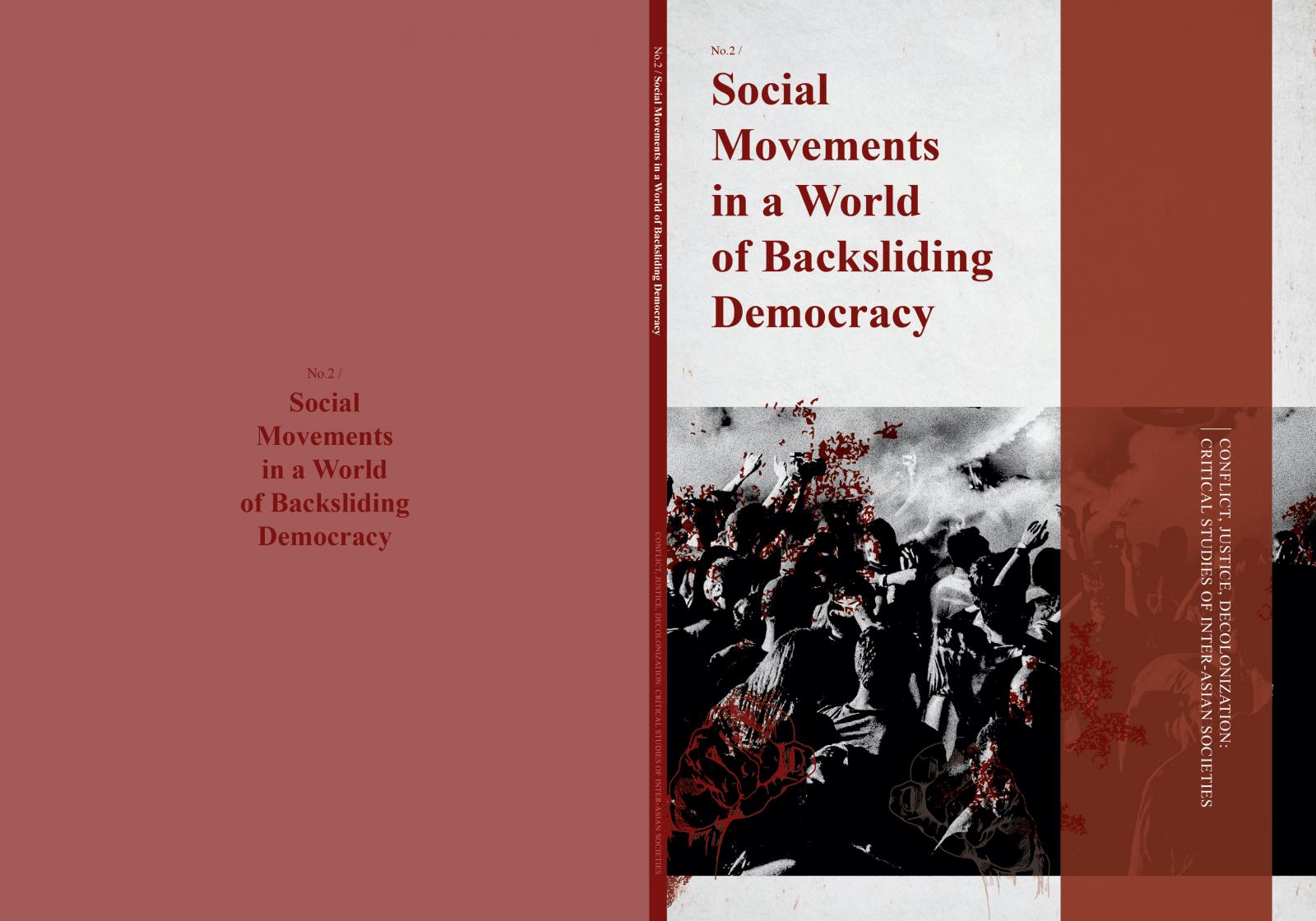

CJD出刊 Social Movements in a World of Backsliding Democracy
2021-05-21

Introduction
There is a growing sense that economic, environmental, political threats are encroaching ever further into the lives of certain groups and communities. Across Asia, there are endless examples of these encroachments that threaten the way of life for many. Those threatened and those sympathetic to them have demonstrated on the streets, written petitions, and formed coalitions to magnify their collective actions. Oftentimes, these demonstrations are met with violence, threats, arrests, and other forms of suppression. Yet, glimmer of hope for a better future keeps the demonstrators going. Sometimes they succeed, and other times they dont. The articles in this special issue examine some of these struggles as they play out in Asia and other parts of the world. to raise awareness of these struggles by bringing them to light. The focus on a range of struggles and issues, such as sources of friction, forms of mobilization, and state response, to mention a few.
There are articles that focus on Hong Kong by highlighting the configuration of social movements and how they compare to struggles elsewhere. Other authors discuss the forces behind nationalism in India and Tibet. These authors show how the people is constructed and how it is being threatened by what is perceived as external forces. Some articles discuss the issue of subalternity in Malaysia and India. These articles examine how the other are pushed to the margins of society where they are often deprived of their rights, violently separated from their land, and forced to conform to new and foreign ways of life. A volume on social movements would be incomplete without talking about democracy. In many cases, social movements arise in the context of undemocratic democracies. Some articles in this volume focus on this very issue of democracy, showing how in some countries it is being eroded by authoritarian governments, while in other countries it risks dividing the nation along “democratic” lines. Finally, there is a film review of the movie Joker where the author argues that the film is a grim reminder of our very own turbulent societies. The author dismisses media claims that the movie is too violent, arguing instead that the film forces us to conduct deep self-introspection.
Indeed, the topics covered in this issue vary widely in terms of focus and approach. The authors hail from a range of disciplines, including literature, history, and anthropology. As editors of this issue, we see such diversity as an opportunity to explore social movements and democracy from a range of perspectives and through multiple approaches. We hope that these articles will spur further discussions and questions on some of the issues discussed. More importantly, we hope that readers will enjoy reading them as much as the authors enjoyed writing them.
Table of Contents
1. The Non-Fictitious Destiny of Youth in Hong Kong
Qi LI, 2020
2. The Movements in Catalonia and Hong Kong: Democracy Advocacy or Examples of Global Illiberalism?
Juan Alberto Ruiz Casado, 2019
3. The Contemporary Narratives of the 1960s Social Movements in Hong Kong: Notes on Wong Bik-wan’s The Death of Lo Kei
IP Po Yee, 2019
4. Understanding the Discourse of Populism and Nationalism in India
Feeza Vasudeva, 2020
5. Burning Buddhists: Self-Immolation in Tibet as an Expression of Buddhist Nationalism
Hanne Van Regemortel, 2019
6. Of Interregnum and The Formation of Malaysian Subaltern Counterpublics
Zikri Rahman, 2018
7. 大洋東渡:威權時期巫統控制沙巴州政權動機與手段
李政豪, 2019
8. Prospects for Justice in India’s Socio-environmental Conflicts
Lungani Hlongwa, 2019
9. The Beijing-Manila Relations and the State of Philippine Democracy under Rodrigo Duterte
Fernan Talamayan, 2019
10. Joker: An Unflattering Mirror of Society
Hanh T. L. Nguyen, 2019
E-book reading: LINK
Website ISSN 2709-5479
近期新聞 Recent News


